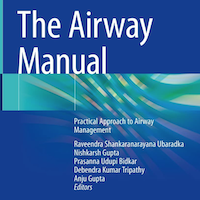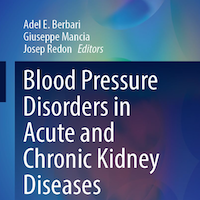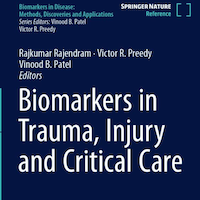Tag: pneumonia
The Great Escape: How ECMO Weaning Shifts Antibiotic Levels
This case study explores the complex pharmacological landscape of treating a 47-year-old patient with severe renal impairment and pneumonia using ceftazidime–avibactam (CAZ-AVI) while on VA-ECMO support. Researchers... read more
Extracorporeal Life Support for Adults
This book presents a concise, evidence-based review of extracorporeal life support (ECLS) for adult diseases. It describes the use of ECLS with patients who are experiencing severe hypoxemic respiratory failure (ARDS and... read more

Superbugs Are Winning – Time to Fight Back with the Four-Pillar Plan
The relentless global surge in multidrug-resistant (MDR) infections, vividly illustrated by high rates of carbapenem-resistant Acinetobacter in Western Romania and echoed worldwide, is outpacing outdated diagnostic and treatment... read more
Steroids Save Lives in Severe Pneumonia and ARDS – Without Spiking Superbug Risk
A rigorous new systematic review and meta-analysis of 20 high-quality trials (3,459 patients) confirms that low-dose, short-course systemic corticosteroids significantly reduce short-term mortality in both severe pneumonia... read more
The POCUS Textbook: Learn Point-of-Care Ultrasound of the Blood Vessels, Heart, & Lungs
Bring your physical exam into the modern era by learning point-of-care ultrasound (POCUS). Learn cardiopulmonary POCUS with step-by-step instructions from Dr. Istrail. Over 100 crystal-clear figures beautifully designed... read more

Lungs Hit Hardest: Respiratory Sepsis Survivors Face Sharply Higher Death Rates and Cognitive Decline Years Later
In a large cohort study of 12,854 ICU survivors in Germany, patients who survived respiratory sepsis (RS) – mostly from bacterial pneumonia – had significantly worse long-term outcomes than those who survived SARS-CoV-2... read more
Assessing Vulnerability: Frailty’s Link to ICU Infections
This study outlines the protocol and statistical analysis plan for a preplanned secondary analysis of the PROSPECT trial (Probiotics to Prevent Severe Pneumonia and Endotracheal Colonization Trial). The goal of this research... read more
Scarred Lungs: Identifying Fibrosis Risk After COVID-19 ARDS
This substudy of the large, multicenter RECOVIDS cohort investigated the predictive factors for developing fibrotic changes (FC) in survivors of COVID-19-related Acute Respiratory Distress Syndrome (ARDS) six months after... read more
NAC Dosing Dilemma: Balancing Better Outcomes with Higher Costs in Pneumonia
This study performed a cost-effectiveness analysis comparing the use of two versus three dosage forms of N-acetylcysteine (NAC) as an adjunctive mucolytic therapy for ICU patients with pneumonia. Study Summary and Key... read more
VAEs are Real: Advanced Modeling Confirms Ventilator Events Drive Worse Outcomes
The study by Nakahashi et al. significantly advances our understanding of Ventilator-Associated Events (VAEs) by using advanced causal modeling. Their findings firmly establish that VAEs are clinically significant events... read more
Lung Ultrasound Speeds Up VAP Diagnosis and Improves ICU Outcomes
This prospective randomized controlled study investigated whether using Lung Ultrasound (LUS) as a primary bedside tool for diagnosing Ventilator-Associated Pneumonia (VAP) could outperform the standard radiological approach... read more
Endotracheal Tube Cuff Pressure Monitoring and VAP Occurrence
This study demonstrated that maintaining endotracheal tube cuff pressure at 30 cm H2O through monitoring every 8 h did not result in a greater incidence of under-inflation (pressures ... read more
Serum MANF vs. Severity and Prognosis in Community-acquired Pneumonia Patients
This evidence demonstrated that serum mesencephalic astrocyte-derived neurotrophic factor (MANF) is positively associated with scoring criteria and poor prognosis in community-acquired pneumonia (CAP) patients. Serum... read more
Tocilizumab vs. IVIG in Patients with Severe COVID-19 Pneumonia
Severe COVID-19 patients who received IVIG in the early phase of the disease did not show better clinical outcomes in terms of mortality, hospitalization time and intensive care unit admission compared to those who received... read more
Holy Water Not so Holy: Potential Source of Elizabethkingia Pneumonia and Bacteremia in an Immunocompromised Host
This case report highlights that E. anophelis may indeed cause significant infection and should not be considered a contaminant especially in immunosuppressed individuals. The organism originates from water sources and may... read more
Ventilator-associated Pneumonia Pathogenesis: Old and New Mechanisms
Ventilator-associated pneumonia (VAP), defined as a lung infection that occurs in patients after 48 hours on mechanical ventilation, is among the most frequently found nosocomial infections in intensive care units around... read more
Clinical Characteristics and Survival Outcomes of Invasive Pulmonary Aspergillosis Patients
Invasive pulmonary aspergillosis (IPA) is a severe infectious disease caused by Aspergillus spp. It is associated with high mortality, particularly in immunocompromised patients, as well as in those with COVID-19 pneumonia... read more
Severe Adenoviral Infections: Disease Progression and Poor Prognostic Markers
Low hemoglobin, high serum ferritin, and high LDH in the second week are markers of disease progression and poor prognostic markers in severe adenoviral infections, emphasizing further research and targeted interventions. The... read more
Increased Sodium Levels Associated with Ceftriaxone Administration
Serum sodium elevation is considered a frequent manifestation in critically ill patients, with significant clinical outcomes and requiring timely management. This case report suggests a possible association between the... read more
TyG Index And Short-term Mortality in Patients with Cardiogenic Shock
The triglyceride-glucose (TyG) index is significantly associated with short-term mortality in patients with cardiogenic shock (CS) and may serve as a useful biomarker for risk stratification. This retrospective cohort... read more
Promising Prognostic Predictors in Sepsis Patients Using Lactate and Albumin Ratio
Serum Lactate/Albumin ratio and BAR ratio were significantly higher in sepsis and/or septic shock and associated with increased length of hospital stay and increased in-hospital mortality and poor clinical outcome inside... read more
Successful Clearance of Persistent Staphylococcus Aureus Pneumonia Using High-dose Continuous Infusion Cefazolin
High-dose cefazolin (10 g daily), given as a continuous infusion (CI), was able to clear community-acquired methicillin-susceptible Staphylococcus aureus (MSSA) pneumonia while not exhibiting any signs of toxicity or adverse... read more








